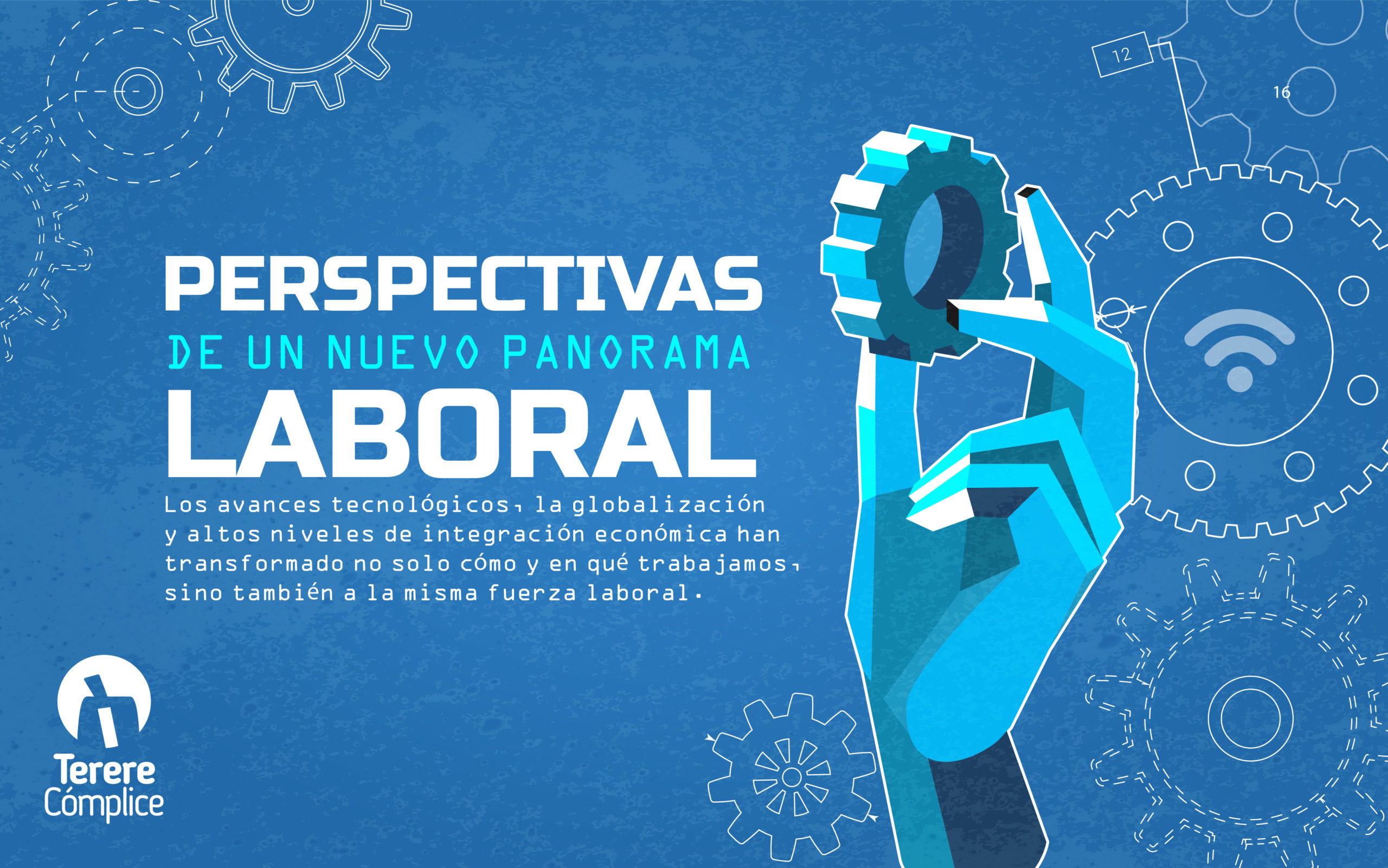
Special series by Terere Cómplice “The future of work and the jobs of the future”
By Claudia Pompa.
Advances in technology, globalization, and high levels of economic integration in recent decades have transformed not only how we work and what we do, but also the workforce itself. In recent years we have witnessed a proliferation of jobs that did not previously exist. The emergence of positions such as application developer, social media manager, and data analyst among others, demonstrates the profound transformation of the job market and the skills and competencies necessary to be part of it.
Although the discussion about the future of work and its implications is not new, it has become a hot topic, politically and socially, as a result of the COVID-19 pandemic and its devastating implications for the jobs and lives of millions of people. In the past 12 months, the health crisis has morphed into an economic one that has tested human resilience, the soundness of institutions, and the strength of economies.
In January 2021, the ILO estimated that has been a loss of 144 million jobs with $ 3.7 trillion in lost wages globally. The data indicate that 93% of the world’s workers live in countries with some type of labor restrictions. One of the main characteristics of these changes is their asymmetric nature, since they impact vulnerable populations with the greatest ferocity and speed. The COVID-19 pandemic has deepened existing inequalities in labor markets and set back any increase in employment achieved since the financial crisis of 2007–2008.
Although the outlook for the global labor market remains uncertain, research on the subject indicates that certain trends will continue to influence the future of work. One of these main trends is the adoption of new technologies. The processes of automation, digitization and the increase in the use of artificial intelligence not only have an impact on the functions and types of jobs but also on the skills required to access these positions. The impact of these technologies will be transformational: by 2025 it is expected that humans and machines will have an equal division of labor in terms of time devoted to on-the-job tasks (50% machines, 50% humans).
Although the expectation is that in the long run technological advances will generate new job opportunities in emerging sectors, in the short term such developments will lead to a displacement of workers and a greater need to generate new job opportunities. The World Economic Forum estimates that by 2025, 85 million jobs will be displaced as a result of the impacts from technological advances. In the same period, they predict the creation of 97 million jobs, including managing new technologies. However, these jobs will require new skills and will have different career paths.
Technological changes have demanded and will continue to demand highly skilled workers, while the demand for unskilled workers has declined and will continue to decline, along with their respective incomes. This situation will require profound structural changes in education and training systems to improve their quality and scope. Without these changes, countries like Paraguay run the risk of turning their demographic bonuses, which are expected to help countries grow and prosper, into heavy economic and political burdens.
When we talk about the future of work, the challenge is not only a matter of quantity and quality of jobs, but also the question of how to adapt our workforce and our societies to a rapidly changing world characterized by increased longevity, high-tech systems, larger and more integrated organizations, and global connectivity.
Although the outlook for the global labor market remains uncertain, research on the subject indicates that certain trends will continue to influence the future of work. One of these main trends is the adoption of new technologies.
This new jobs outlook raises essential questions about the future of work, the skills we need for current and future jobs, the quality of those jobs, and the influence that we, as individuals and societies, can wield in shaping these scenarios. The lack of any proactive or joint efforts to provide answers to these questions could lead to higher levels of inequity, a situation that will be aggravated by the impact of the economic recession due to the pandemic.
This series of articles, focused on the future of work and the jobs of the future, seeks to provide information to support the analysis and debate about the future of work in Paraguay, our integration in the global labor market and its implications for the government, the private sector, and the workforce. The next decade will require dedicated and bold leadership from all stakeholder sectors to allow us to build a future of work that satisfies the human potential that exists in Paraguay. Even as the job market is haunted by high levels of uncertainty, now is the time to build the future foundations of a competitive workforce that will deliver the growth and prosperity we need.
